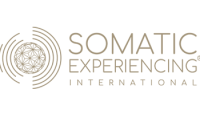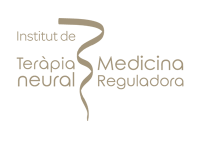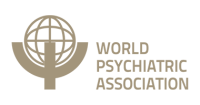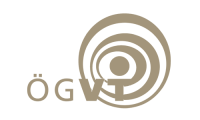Holistic Medicine
12 Minutes
In the pursuit of optimum health and wellness, holistic medicine takes the whole person into account, including the mind, body, emotions, and spirit. As per the holistic medicine ideology, finding the right balance in life can help one reach optimal health, which is the main objective of holistic medicine practice.
As a result, if one element isn’t functioning properly, it will have an impact on all the other parts, according to the proponents of holistic medicine. In this way, people’s overall health may suffer if there are any irregularities in their lives (emotional, physical, or spiritual).
A patient may be treated by a holistic physician using any type of healthcare, including both conventional medicine and alternative therapies. For instance, when a patient with migraines visits a holistic doctor, the doctor will probably look at all the possible factors that may be provoking the patient’s headaches, like other health issues, sleep and diet habits, stress and psychological issues, and preferred spiritual practices, rather than just prescribing medications. Drugs to alleviate symptoms may be part of the treatment strategy, but lifestyle changes to stop headaches from happening again may also be included.
In general, holistic medicine blends conventional medicine with complementary and alternative medicine that have been shown by scientific evidence to be effective. As an element of the holistic approach, therapies including acupuncture, homeopathy, nutrition, meditation, and exercise may be combined with traditional therapy.
Naturopathic remedies and holistic healing aim to enhance the body’s inherent capacity for healing while also enabling the patient to take control of their health. This method considers an illness’s medical, social, psychological, and spiritual elements. Then, these defects are fixed so that the illness can be controlled and treated. Despite having medical training, a holistic doctor prioritizes prevention above treatment.
The following fundamental concepts form the foundation of holistic medicine:
- All humans are in charge of their well-being and possess an inbuilt capacity for healing.
- Mental, emotional, physical, social, and spiritual wholeness are all components of health.
- Rather than focusing on a single condition, treatment includes treating the individual as a whole.
- Instead of only treating the symptoms, the aim of treatment is to address the root cause of the health issue or condition.
- A person’s situation does not define them.
- Holistic health doctors collaborate with their patients to understand them as a whole and to determine the best course of therapy for them.
- Treatment comes second and prevention comes first.
- The interaction between a doctor and the patient influences how well a treatment will go.
Although each holistic practitioner may follow their unique road to wellbeing, there are a number of holistic medicine examples that are typical to most holistic practices, such as:
Mind and Body Therapy
Massage therapy, meditation, acupuncture, yoga, and visualization are just a few of the mind-body therapies employed in holistic medicine. These procedures are used to treat the mind, body, and soul and are provided by qualified professionals. The patient will have better health and well-being when these methods are combined with other treatment modalities.
Techniques for Relieving Stress
Stress has an effect on every part of the body and is associated with a number of diseases, such as a higher risk of heart disease, stroke, high blood pressure, and cancer. Techniques for reducing stress, such as meditation, deep breathing exercises, and journaling, can help patients feel better physically and mentally.
Aromatherapy
Aromatherapy makes use of the sense of smell to enable the body to relax and treat some conditions. For instance, lavender oil pads may be used in aromatherapy to help individuals with anxiety or insomnia get a better night’s sleep.
Acupressure and Acupuncture
In acupuncture, specific body parts are stimulated with needles in order to release energy or to activate the nervous system in order to treat chronic illnesses. The same thing is accomplished with acupressure, except rather than using needles, it applies light pressure.
Chiropractic Care
Chiropractic therapy gently manipulates the neck and spine to enhance the nerve system’s performance, which in turn enhances the body’s functionality. This may support the management of headaches, musculoskeletal pain, and even sickness.
Use of Ayurveda
Metals, herbs, and dietary modifications are used in the Ayurvedic practice to treat health problems. This method also emphasizes the interconnectedness of people and their surroundings.
Natural medicine / Naturopathy
To promote general health, naturopathy utilizes natural remedies like dietary supplements and herbs. To help patients feel better, a naturopathic doctor may advise them to change their diet and engage in more physical activity.
Dietary Counselors
Nutrient-dense eating is a part of overall wellness. In order to support the work that holistic practitioners are doing, nutrition counseling teaches patients how to take control of their health by eating correctly.
Massage Treatment
Overall health and wellbeing can be supported by massage therapy’s ability to soften tight muscles and tissues. Massage is a common therapy modality used by holistic practitioners.
Osteopathy
Osteopathy is comparable to chiropractic care in that it treats the entire body rather than just the spine. An osteopath can work on the complete musculoskeletal system to maintain a solid, healthy skeletal structure and assist the nerves and muscles perform better.
Psychological Counseling
Holistic medicine frequently incorporates mental health therapy since it adopts a body-mind-spirit approach to therapy. A person is better able to heal when they are trained to handle stress and their mental health demands in a healthy way.
Yoga
Yoga is much more than just physical activity. It promotes spiritual tranquility and aids in the connection between the mind and body. This is in line with the holistic approach to total wellness.
An individual who performs holistic medicine is referred to as a holistic doctor. Holistic medical practitioners frequently fall under the following categories:
Naturopathic Doctor
A doctor of naturopathic medicine (ND), also known as a naturopathic physician, is educated in naturopathic medicine.
To cure medical disorders, this style of medicine integrates Western science, alternative medicines, and holistic practices. Both primary and supplementary treatments may involve the use of natural therapies.
The same fundamental sciences that are taught to conventional medical doctors’ students are also taught to naturopathic doctors who attend naturopathic medical colleges. In order to get licensed, they must also pass a professional board exam, however, they are not regarded as medical doctors.
Osteopath
A doctor who practices osteopathic manipulative medicine is known as a doctor of osteopathic medicine or an osteopath. The musculoskeletal system is physically manipulated in this type of holistic practice.
The musculoskeletal system, which is made up of your bones, muscles, and nerves, is believed to have an impact on the entire body.
An osteopath is a doctor, very much like a doctor of medicine (MD). Their medical practice is authorized.
Both MDs and DOs (Doctors of Osteopathic Medicine) enroll in medical school, pick a specialty, and finish their residency programs. To become a licensed doctor, they both take the same exam.
MDs and DOs use traditional therapies when treating a problem. Contrary to standard MDs, some DOs may use musculoskeletal manipulation.
Ayurvedic Doctor
Ayurveda is a system of medicine used by ayurvedic doctors. Ayurveda is a traditional Indian medical system. Ayurveda means “knowledge of life” in Sanskrit.
Health issues, according to practitioners, are brought on by unbalanced life energies or doshas. Through complementary therapies, dietary modifications, herbal supplements, and lifestyle adjustments, Ayurveda seeks to balance these doshas.
Ayurvedic medicine is the main kind of healthcare in India. To become Ayurvedic doctors, practitioners must finish standardized, formal training at an Ayurvedic school.
Unfortunately, there isn’t a national license or accreditation for Ayurvedic practitioners in the US. There is no official medical recognition for ayurvedic doctors.
Integrative Doctor
Medical professionals who practice integrative medicine are known as integrative physicians. This entails integrating CAM with traditional medical procedures.
The goal of integrative medicine is to complement conventional medical treatment. A variety of therapy may also be used.
An official degree is not required to work as an integrative physician. Instead, one goes to medical school, gets their doctor’s license, and then gets some CAM experience or training. Additionally, they can earn board certification in integrative medicine.
Practitioner Of Traditional Chinese Medicine
A historic branch of Chinese medicine is known as traditional Chinese medicine (TCM).
Every individual possesses a qi, or life energy, according to TCM. Qi must be balanced or flowing for good health. But sickness results when the qi is unbalanced or blocked. Through herbal medicine, acupuncture, and lifestyle therapies, TCM seeks to balance qi.
TCM practitioners are those who perform Chinese herbal medicine or acupuncture in the United States.
A certification exam and three to four years of education make up the training. Doctor of Oriental Medicine degrees is offered by some institutions. These degrees, meanwhile, are not accepted as equivalent to medical doctor degrees.
The goal of holistic medicine is to heal the whole person, not just their symptoms. Together with their patients, holistic doctors create strategies to support wellbeing and the healing of the mind, body, and spirit. These holistic approaches to treatment help patients feel better overall, reduce stress, and experience less pain.
Holistic medicine can aid in conquering disease or preventing illness, regardless of whether a person is struggling with the average cold or is coping with a major medical condition like diabetes, high blood pressure, or menopause.
It’s time to start looking for a holistic doctor if you’re ready to take charge of your health. Practitioners of holistic medicine at reputable holistic health facilities believe that you are the center of your own health, and as a result, they will involve you in all decisions regarding your care at every stage.
Each member of the team will use a whole-body strategy to improve your general health, lower your risk of illness, and strengthen your immune system. All holistic medicine facilities have a compassionate and committed healthcare staff that is trained in the application of holistic medicine techniques for maximum healing.
Holistic medicine has numerous health and well-being benefits, including the following:
Improvement Of General Health – Holistic treatments put an emphasis on treating and enhancing a person’s:
- Physical wellbeing
- Spiritual and emotional well-being
- Social wellbeing
- Behavioral health
Natural Approaches – natural remedies, herbs, and noninvasive techniques make up the majority of the treatment options used by holistic physicians. However, bear in mind that this does not imply that these medications are completely risk-free.
Individualized Care – Because holistic practitioners manage patients as individuals, not just a list of symptoms, they typically spend more time in consultations and pay closer attention to their patients.
In addition to the standard treatment of ailments, therapy places a strong emphasis on preventing illness before symptoms start. Holistic therapies assist in avoiding the need for additional, costly treatments since they concentrate on identifying and treating the disease’s underlying causes.
Fewer Side Effects – Based on the patient’s situation, holistic treatment may not necessarily have as many adverse effects as most drugs.
Patients Are Empowered By Holistic Medicine because it teaches them about their intrinsic capacity for healing. With self-care, changes in lifestyle, healthier food, and more exercise, enable people to take charge of their health and wellbeing.
Chemical-Free – Patients might be able to cut back on or entirely stop using pharmaceutical items as part of their treatment regimen.
Less Expensive Than Alternative Treatments – Treatments may be more affordable.
Treats A Variety Of Ailments – Numerous disorders and afflictions can be treated using holistic medicine, including:
- Insomnia
- Depression
- Anxiety
- Backache
- Headache
- Persistent pain and discomfort
- Skin disease
- Stroke
- Heart problem
- Elevated blood pressure
- Addiction
- Fatigue
- Other grave conditions like early-stage cancer and lupus
Power Of Positive Thinking – Holistic medicine recognizes the importance of attitude in maintaining good health. According to research, having a positive outlook and feelings can assist a patient in recovering from their illness. Longevity, better health, and a lower chance of disease all depend on learning how to establish balance, reduce stress, and enhance your view on life.
Utilizing Mother Nature’s Power – Mother Nature offers many options for people to become healthier and find cures for disease and illness. Humans have used plants’ healing abilities to treat their illnesses for thousands of years. Many individuals are unaware that around 75% of all drugs on the market today contain organic plant extracts, fungi, or molds.
Learning Opportunities In Life – Holistic medicine recognizes that a patient’s life is full of learning and growth opportunities. These possibilities include happiness, illness, childbirth, and even death. The holistic practitioner is able to assist the patient in focusing on learning prospects rather than merely the emotional aspect of events that happen in their lives by teaching them how to view each struggle as a teachable moment. By lowering stress levels and enhancing the patient’s view on life, this practice aids in the promotion of physical, emotional, and psychological recovery.
Yoga Stress Reduction – A healthy lifestyle and excellent health are the objectives of holistic medicine. The patient’s emotional and mental well-being will also be discussed. A holistic physician could advise a patient to incorporate stress-relieving activities like journaling, yoga, and prayer into their daily lives. Tai chi Yoga is utilized to improve the body, while guided imagery, hypnotherapy, and meditation are used to calm the mind.
Although holistic medicine has numerous advantages, it should not be seen as a substitute for conventional medical treatment. Certain complementary therapies may occasionally interact negatively with contemporary drugs and do more harm than good. Be cautious to consult your doctor prior to trying any alternative therapies.
FAQs
Holistic Medicine Seeks To Treat The Individual In What Manner?
Holistic medicine is a way of healing that looks at the whole person, including their mind, body, emotions, and spirit, in order to help them be as healthy and happy as possible. As per the holistic medicine ideology, finding the correct equilibrium in life can help one reach better health and wellness, which is the main objective of holistic medicine practice.
What Services Does A Holistic Doctor Provide That A Conventional Doctor Does Not?
Traditional physicians typically treat symptoms. They offer medicinal remedies to cure diseases. A holistic physician views the body as a whole. Rather than only treating the symptoms, they seek to identify the underlying cause of the illness. This can call for several treatments.
For instance, a doctor might prescribe a cream to you if you have eczema. But a holistic physician might advise making lifestyle and diet adjustments. Additionally, the holistic physician may advise combining the cream with natural home cures like oatmeal baths.
Who Promoted A Holistic Healing Approach To Medicine?
Hippocrates, who is regarded as the founder of modern medicine, laid great emphasis on a holistic approach to healing. He advised physicians to treat the whole person—mind, body, and spirit—instead of just the symptoms.
HOW SENSES CAN HELP WITH Medical
Senses is a leading provider of luxury addiction and mental health treatment for affluent individuals and their families, offering a blend of innovative science and holistic methods with unparalleled individualised care.
A UNIQUE METHOD
successful and proven integrative holistic conceptOur program consists of treating only one client at a time individually designed to help you with all the problematic aspects of your life. All individual treatment sessions will be held at your private residence.
more infoYour program is designed based on your personal needs. The team will exchange daily information and adjust the schedule as we go. Our therapists will work with you treating integrative not just the symptoms and goes beyong your stay to ensure lasting success.
more infoOur biochemical imbalance can be affected by diet and stressful life events, but it often goes back to genetics and epigenetics. We do specific biochemical laboratory testing to determine an individual’s biochemical imbalance. Combining the results of the lab tests with anamnestic information and clinical tests, we prescribe an individualized and compounded vitamin, mineral, nutrient protocol to help recover from various disease states.
more infoOur experts combine the best from psychological treatment, holistic medicine to support you individually and providing complementary therapies all coordinated from one source working complementing each other integrative.
more infoUsing latest cutting-edge technology-based therapies such as Neurofeedback, tDCS, and SSP, we can track the biological patterns of your body, giving us valuable insight into your health and well-being as well support your brain and body performance and recovery with neuromodulation.
more infoOur chef and nutrition specialist will design your personalized diet plan supporting your body & mind recovery as well as helping with weight management. Nutrition workshops and mindful eating sessions will help you to maintain a healthy lifestyle.
more infoMedical TREATMENT LASTING APPROACH
0 Before
Send Request
0 Before
Define Treatment Goals
1 week
Assessments
1-4 week
Integrative Holistic Therapies
5-12 week
Aftercare
12+ week
Refresher Visit
Medical Insights
latest news & research on MedicalWhat is Holistic Health
Holistic health is a way of living that takes into account all aspects of wellness. It promotes respect for the whole person, including their mental, physical, social, intellectual, emotional, and spiritual needs. The person takes an active role in making decisions about their health and treatment, including choosing a lifestyle that promotes wellbeing.
read moreHolistic Medicine
In general, holistic medicine blends conventional medicine with complementary and alternative medicine that have been shown by scientific evidence to be effective.
read moreAccreditations



























































